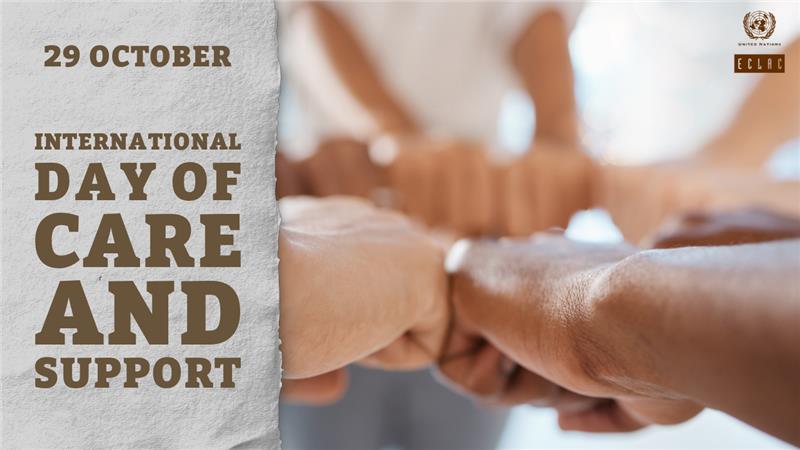The Care Society: Acting Today for a Better Future
By José Manuel Salazar-Xirinachs, Executive Secretary of ECLAC

On October 29, International Day of Care and Support, we are called to reflect and take action towards building a society that prioritizes care for people and the planet. Latin America and the Caribbean currently faces a development crisis, trapped in three major challenges: low growth capacity, high inequality, and limited institutional capacity. In this context, ECLAC has documented a persistent care crisis, exacerbated by population aging and the effects of climate change.
In our region, women and girls bear a disproportionate burden of care work, both paid and unpaid. Additionally, we face a chronic lack of investment, infrastructure, and policies that recognize the importance of this work. One in four women in Latin America has no independent income, almost three times the rate for men. Half of the women are outside the labour market, and among them, more than half do not engage in paid work due to family and care responsibilities.
The sexual division of labour continues to relegate women to the domestic sphere. Women spend nearly three times as much time as men on unpaid domestic and care work. Despite technological progress, the demand for care has not diminished. Currently, there are over 95 million people aged 60 and above living in our region (14.3% of the population), and this group is expected to account for 25% by 2050. This rapid aging increases the need for long-term care, particularly for those over 80 years old, many of whom lack adequate social protection.
It is urgent to design policies that address these growing care needs and improve the conditions for those providing care. Such policies must promote co-responsibility between men and women, as well as among households, the state, communities, and the private sector. Additionally, quality jobs in the care economy should be created, with a focus on enhancing long-term care services and reducing the burden of unpaid care work in households. This approach would not only stimulate the economy but also eliminate one of the primary barriers to women’s labour force participation.
To ensure the creation of quality jobs in the care sector, it is essential to guarantee decent work with fair labour conditions, formalization, and social protection. This is particularly relevant for domestic workers and migrant workers, who often find themselves in more precarious employment situations.
Latin America and the Caribbean has made progress in care policies and systems over the past decade, with notable innovations in regulations and improvements in gender statistics, particularly in measuring time use. Recognizing care as a right and as essential work has been key to consolidating this approach. At the regional level, the Regional Gender Agenda, adopted over nearly five decades at the Regional Conference on Women in Latin America and the Caribbean, has driven this shift. In the Brasilia Consensus (2010), the right to care was recognized for the first time, further strengthened by the Buenos Aires Commitment adopted in 2022.
The focus on care has also gained relevance in other intergovernmental spaces within ECLAC, such as the Montevideo Consensus on Population and Development (2013), the Regional Conference on Ageing and the Rights of Older Persons (Asunción 2017 and Santiago 2022), and the Regional Conference on Social Development of Latin America and the Caribbean (2023). These meetings reflect a growing consensus on the need to address care as a pillar for sustainable development.
The care society is the horizon we must strive towards. Overcoming development traps requires deep transformations that can only be achieved through intergenerational solidarity, strategic investments, and regional cooperation. Promoting a care society calls on us to act and build a more inclusive, productive, and sustainable future, where the well-being of all people is at the center of our policies.
This call is not only urgent, but also unavoidable. Acting today is to sow hope for future generations and ensure that care, in all its forms, is recognized as the foundation of a more just society.